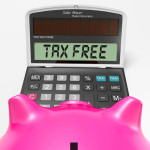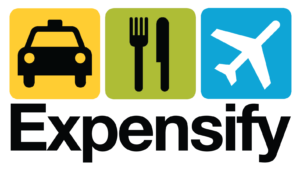5 Tax Tips for Freelancers
May 31, 2016 by Ed Becker
Being your own boss and working for yourself has many benefits and many challenges. For most people the benefits outweigh the challenges. Tax filing is one of the challenges. It takes being committed to keeping records and staying organized to ensure that you are not over or understating your income and expenses. This article will discuss a few of many tips that can help you with the process of being ready for tax filing.
- Income
Be diligent with your recordkeeping of all income. If you rely on clients to send you 1099s you could miss income easily. Some clients are not timely in sending 1099s, if at all. If you do not earn more than $600 from a single client, they are not required to send you a 1099.
Using Excel or Google docs is a simple way to track and record your income. You want to keep good details as you record all of your income, do not rely on memory or bank statements. Things to note: date contracted, amount paid, date paid and what work was completed. This will help alleviate issues in case you get audited. Using a spreadsheet also allows you to easily total your income at the end of the year and per client so you can request a 1099 if you do not receive on time.
- Expenses
Second most important in your recordkeeping is tracking expenses. The reasons for this is not only for tax purposes but also for you to see where your money gets spent, where you can possibly cut costs to increase your bottom line and to compare prices between vendors.
Again using a spreadsheet is easiest, allowing you to separate expenses by categories to make totals at year end very simple. Nearly all expenses should be categorized, there may be a few that are miscellaneous and these should have notes included as to what they were. If space is an issue for you to save receipts, you should scan them as received and file them by date.
- Deductions
Because freelancers must pay self-employment tax, deductions are extremely important. Keeping track of necessary and normal business expenses will help reduce your taxable income, therefore reducing your tax liability. Self-employment tax is based on your net income, not your gross income.
Some of the most common deductions are: mileage, business related meals, lodging, office expenses, supplies, equipment and materials, professional dues and memberships and tax preparation. There are always restrictions on deductions and expenses that qualify, if you are not comfortable learning these hire a professional, you can also deduct their fees!
- Basic tax forms
When it comes time to actually file your tax return as a self-employed individual you will have forms that are required to show income and expenses, deductions and self-employment tax liability. Depending on how your business is structured guides what forms will have to be filed. Normally, for a freelancer you will file a normal form 1040, a Schedule C or C-EZ and a Schedule SE. If you are a farmer a Schedule F and if you are a partnership a Schedule K or K1. These are the basic forms, consult with your tax advisor if you have special circumstances or you are not sure what forms you must file.
- Estimated tax payments
Estimated tax payments are paid quarterly based on projection or estimation of your income for the next year. If you are a new business, you will not have income history to pay estimated taxes this year. So you should be setting aside a percentage of each client payment for tax payments. If you are paying quarterly estimated tax payments, you should be also setting aside money regularly for self-employment taxes. By religiously setting aside monies for self-employment tax and income tax or paying your quarterly estimated tax payments, you will not have a huge tax liability come April 15th.
Category: Small Business





